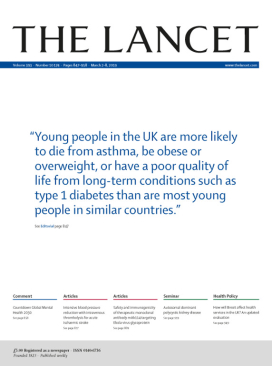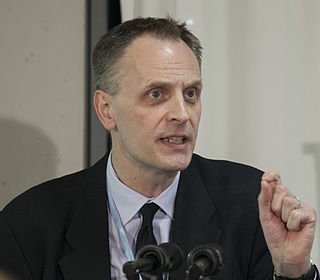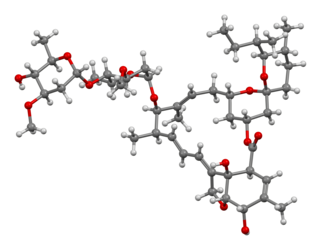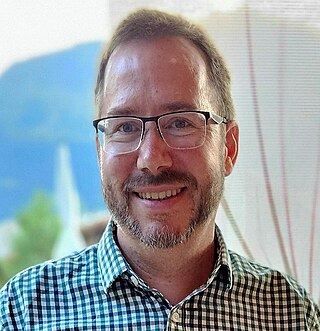Related Research Articles
Scientific misconduct is the violation of the standard codes of scholarly conduct and ethical behavior in the publication of professional scientific research. It is violation of scientific integrity: violation of the scientific method and of research ethics in science, including in the design, conduct, and reporting of research.

The Lancet is a weekly peer-reviewed general medical journal and one of the oldest of its kind. It is also one of the world's highest-impact academic journals. It was founded in England in 1823.

Richard Charles Horton is editor-in-chief of The Lancet, a United Kingdom–based medical journal. He is an honorary professor at the London School of Hygiene and Tropical Medicine, University College London, and the University of Oslo.
In academic publishing, a retraction is a mechanism by which a published paper in an academic journal is flagged for being seriously flawed to the extent that their results and conclusions can no longer be relied upon. Retracted articles are not removed from the published literature but marked as retracted. In some cases it may be necessary to remove an article from publication, such as when the article is clearly defamatory, violates personal privacy, is the subject of a court order, or might pose a serious health risk to the general public.
John Roland Darsee is an American physician and former medical researcher. After compiling an impressive list of publications in reputable scientific journals, he was found to have fabricated data for his publications.
Jon Sudbø is a Norwegian dentist, physician, and former medical researcher, who was exposed as a scientific fraudster in 2006. Over a period of several years, he fabricated results in the field of oncology which he published in leading medical journals. The article that led to his downfall, which was published in The Lancet, was based on 900 patients Sudbø had fabricated entirely. The editor of The Lancet described this as the biggest scientific fraud conducted by a single researcher ever.
Amit Nilkanth Patel MD, BS, MS is an Indian-American cardiac surgeon and former director of clinical regenerative medicine and tissue engineering at the University of Utah in Salt Lake City. He was a tenured professor of surgery-cardiothoracic at the University of Utah until December 2016.

Andrew Jeremy Wakefield is a British fraudster, discredited academic, anti-vaccine activist, and former physician.
Yoshitaka Fujii is a Japanese researcher in anesthesiology, who in 2012 was found to have fabricated data in at least 219 scientific papers, of which 183 have been retracted.
Mandeep R. Mehra is The William Harvey Distinguished Chair in Advanced Cardiovascular Medicine and a professor of medicine at Harvard Medical School. He is the medical director of the Brigham Heart and Vascular Center in Boston, Massachusetts, and specializes in advanced heart failure, mechanical circulatory support and cardiac transplantation.
Annarosa Leri is a medical doctor and former associate professor at Harvard University. Along with former professor Piero Anversa, Leri was engaged in biomedical research at Brigham and Women’s Hospital in Boston, an affiliate of Harvard Medical School. Since at least 2003 Anversa and Leri had investigated the ability of the heart to regenerate damaged cells using cardiac stem cells.

Oriol Mitjà i Villar is a Catalan-born Spanish researcher and consultant physician in internal medicine and infectious diseases with expertise in poverty-related tropical diseases. He has conducted research at the Lihir Medical Centre in Papua New Guinea since 2010 on new diagnostic and therapeutic tools to eradicate yaws. He was awarded the Princess of Girona Award in the scientific research category. Currently at the Germans Trias i Pujol Research Institute, Mitjà is conducting research on SARS-CoV-2 coronavirus disease (COVID-19) and strategies to control the infection at a community level.
Surgisphere is an American healthcare analytics company established in 2008 by Sapan Desai. Originally a textbook marketing company, it came under scrutiny in May 2020 after it provided large datasets of COVID-19 patients that were subsequently found to be unreliable. The questionable data were used in studies published in The Lancet and The New England Journal of Medicine in May 2020, suggesting that COVID-19 patients on hydroxychloroquine had a "significantly higher risk of death". In light of these studies, the World Health Organization decided to temporarily halt global trials of the drug hydroxychloroquine to treat COVID-19. After the studies were retracted, the WHO trials were resumed and then discontinued shortly after.
Sir Martin Jonathan Landray is a British physician, epidemiologist and data scientist who serves as a Professor of Medicine & Epidemiology at the University of Oxford. Landray designs, conducts and analyses large-scale randomised control trials; including practice-changing international trials that have recruited over 100,000 individuals. Landray previously led the health informatics team that enabled the collection and management of data for the UK Biobank on over half a million people.

Pierre Kory is an American critical care physician who gained attention during the COVID-19 pandemic for advocating widespread off-label use of certain drugs as treatments for COVID-19, as president and co-founder of the Front Line COVID-19 Critical Care Alliance (FLCCC). Kory testified twice to the U.S. Senate regarding COVID-19. During his testimony in December 2020, Kory erroneously claimed that the antiparasitic medication ivermectin was a "wonder drug" with "miraculous effectiveness" against COVID-19.

Chloroquine and hydroxychloroquine are anti-malarial medications also used against some auto-immune diseases. Chloroquine, along with hydroxychloroquine, was an early experimental treatment for COVID-19. Neither drug has been useful to prevent or treat SARS-CoV-2 infection. Administration of chloroquine or hydroxychloroquine to COVID-19 patients has been associated with increased mortality and adverse effects, such as QT prolongation. Researchers estimate that off-label use of hydroxychloroquine in hospitals during the first phase of the pandemic caused 17,000 deaths worldwide. The widespread administration of chloroquine or hydroxychloroquine, either as monotherapies or in conjunction with azithromycin, has been associated with deleterious outcomes, including QT interval prolongation. As of 2024, scientific evidence does not substantiate the efficacy of hydroxychloroquine, with or without the addition of azithromycin, in the therapeutic management of COVID-19.
Peter Andrew McCullough is an American cardiologist. He was vice chief of internal medicine at Baylor University Medical Center and a professor at Texas A&M University. From the beginnings of the COVID-19 pandemic, McCullough has promoted misinformation about COVID-19, its treatments, and mRNA vaccines.

Ivermectin is an antiparasitic drug that is well established for use in animals and people. The World Health Organization (WHO), the European Medicines Agency (EMA), the United States Food and Drug Administration (FDA), and the Infectious Diseases Society of America (IDSA) all advise against using ivermectin in an attempt to treat or prevent COVID-19.

David Boulware is a professor of medicine and a practicing infectious disease physician at the University of Minnesota Medical School. He is a member of the graduate faculty for the University of Minnesota School of Public Health Epidemiology PhD program and for the Microbiology, Immunology, and Cancer Biology (MICaB) graduate program. Boulware was the first Lois & Richard King Distinguished Assistant Professorship at the University of Minnesota. Boulware is an active medical researcher engaged in clinical trials in infectious diseases. His expertise is particularly in the realm of HIV-related meningitis, including Cryptococcosis and Tuberculous meningitis.
References
- ↑ Aldhous, Peter; Lee, Stephanie M. (6 June 2020). "Scientists Are Questioning Past Research By The Founder of Surgisphere". BuzzFeed News . Retrieved 7 June 2020.
- 1 2 3 4 5 6 7 Ellen Gabler; Roni Caryn Rabin (27 July 2020). "The Doctor Behind the Disputed Covid Data". The New York Times . Retrieved 27 July 2020.
- 1 2 Elisabeth Bik (2020-06-06). "The Surgisphere Founder and the Melba Toast figure". Science Integrity Digest. Retrieved 2020-06-08.
- ↑ "Alumni". Chicago Medicine. Retrieved 6 June 2020.
Sapan Desai (2006) PhD: Anatomy & Cell Biology ; Thesis Advisor: Anna Lysakowski, PhD Residency: General Surgery, Duke University
- ↑ "University of Illinois College of Medicine at Chicago Match Results". Chicago Medicine. Retrieved 6 June 2020.
- 1 2 3 Offord, Catherine (2020-05-30). "Disputed Hydroxychloroquine Study Brings Scrutiny to Surgisphere". The Scientist Magazine®. Retrieved 2020-06-08.
- ↑ Davey, Melissa; Kirchgaessner, Stephanie; Boseley, Sarah (2020-06-03). "Surgisphere: governments and WHO changed Covid-19 policy based on suspect data from tiny US company". The Guardian. ISSN 0261-3077 . Retrieved 2020-07-07.
- ↑ "Online MBA Graduate Sapan Desai, MD, Ph.D. - A WGU Success Story". YouTube. Western Governors University. 2012. Retrieved 9 June 2020.
- ↑ Roberta Bernstein (25 September 2015). "Medical Scientist MD-PHD UIC newsletter vol 16 issue 1" (PDF). chicago.medicine.uic.edu. Retrieved 6 June 2020.
- 1 2 Roni Caryn Rabin (14 June 2020). "The Pandemic Claims New Victims: Prestigious Medical Journals". The New York Times . Retrieved 18 June 2020.
- ↑ Mehra, Mandeep R.; Desai, Sapan S.; Kuy, SreyRam; Henry, Timothy D.; Patel, Amit N. (4 June 2020). "Retraction: Cardiovascular Disease, Drug Therapy, and Mortality in Covid-19. N Engl J Med. DOI: 10.1056/NEJMoa2007621". New England Journal of Medicine. 382 (26): 2582. doi:10.1056/NEJMc2021225. PMC 7274164 . PMID 32501665.
- ↑ Mehra, Mandeep R; Ruschitzka, Frank; Patel, Amit N (5 June 2020). "Retraction—Hydroxychloroquine or chloroquine with or without a macrolide for treatment of COVID-19: a multinational registry analysis". The Lancet. 395 (10240): 1820. doi:10.1016/S0140-6736(20)31324-6. PMC 7274621 . PMID 32511943.
- ↑ The Editors Of The Lancet Group (17 September 2020). "Learning from a retraction". The Lancet. 396 (10257): 1056. doi:10.1016/S0140-6736(20)31958-9. PMC 7498225 . PMID 32950071.
{{cite journal}}:|last1=has generic name (help) - ↑ Hopkins, Jared S. (18 September 2020). "Lancet Medical Journal Changes Peer-Review Process Amid Flurry of Covid-19 Research". The Wall Street Journal. Retrieved 18 September 2020.
- ↑ Davey, Melissa; Kirchgaessner, Stephanie (2020-06-10). "Surgisphere: mass audit of papers linked to firm behind hydroxychloroquine Lancet study scandal". The Guardian. Retrieved 2020-06-10.
- ↑ Piller, Charles (2020-06-08). "Who's to blame? These three scientists are at the heart of the Surgisphere COVID-19 scandal" . Retrieved 2020-07-07.